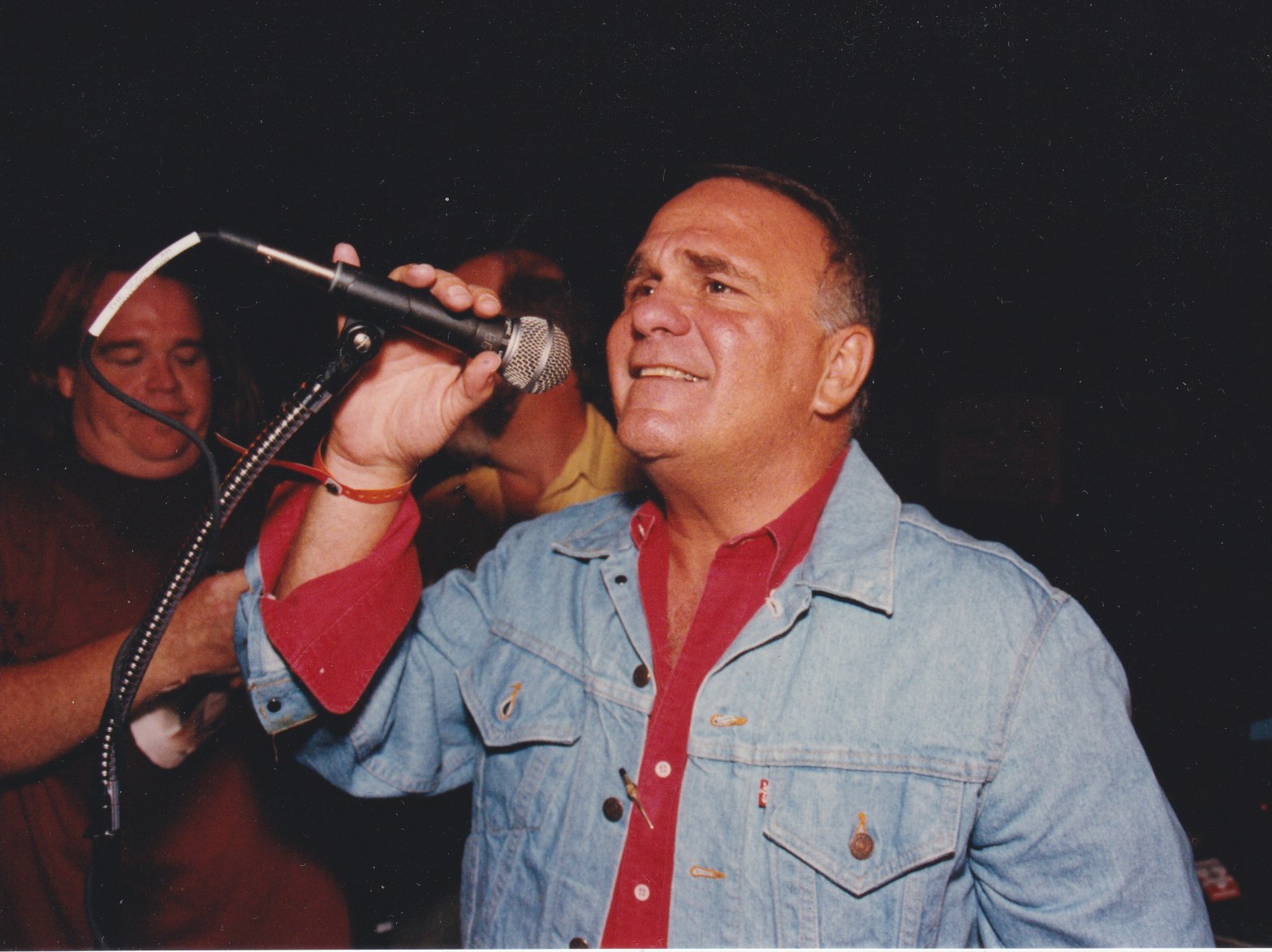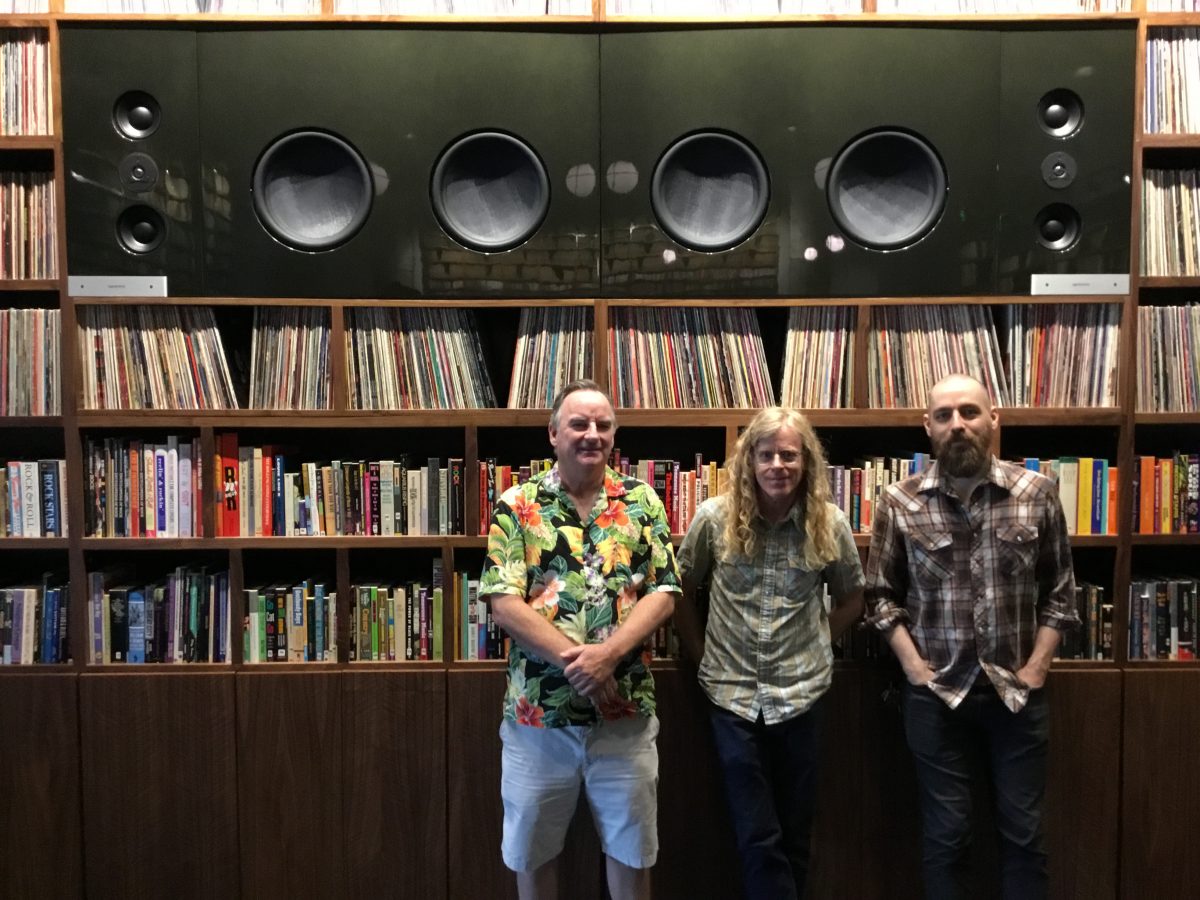Back in the ’50s and ’60s, John King was already a collector’s collector. Even as he went on to distinguish himself as a promoter, program director, and studio owner (having initially co-founded Ardent Studios with fellow teens John Fry and Fred Smith in 1959), he continued collecting all the while. But for years he pondered the question of where to safeguard that collection for posterity.
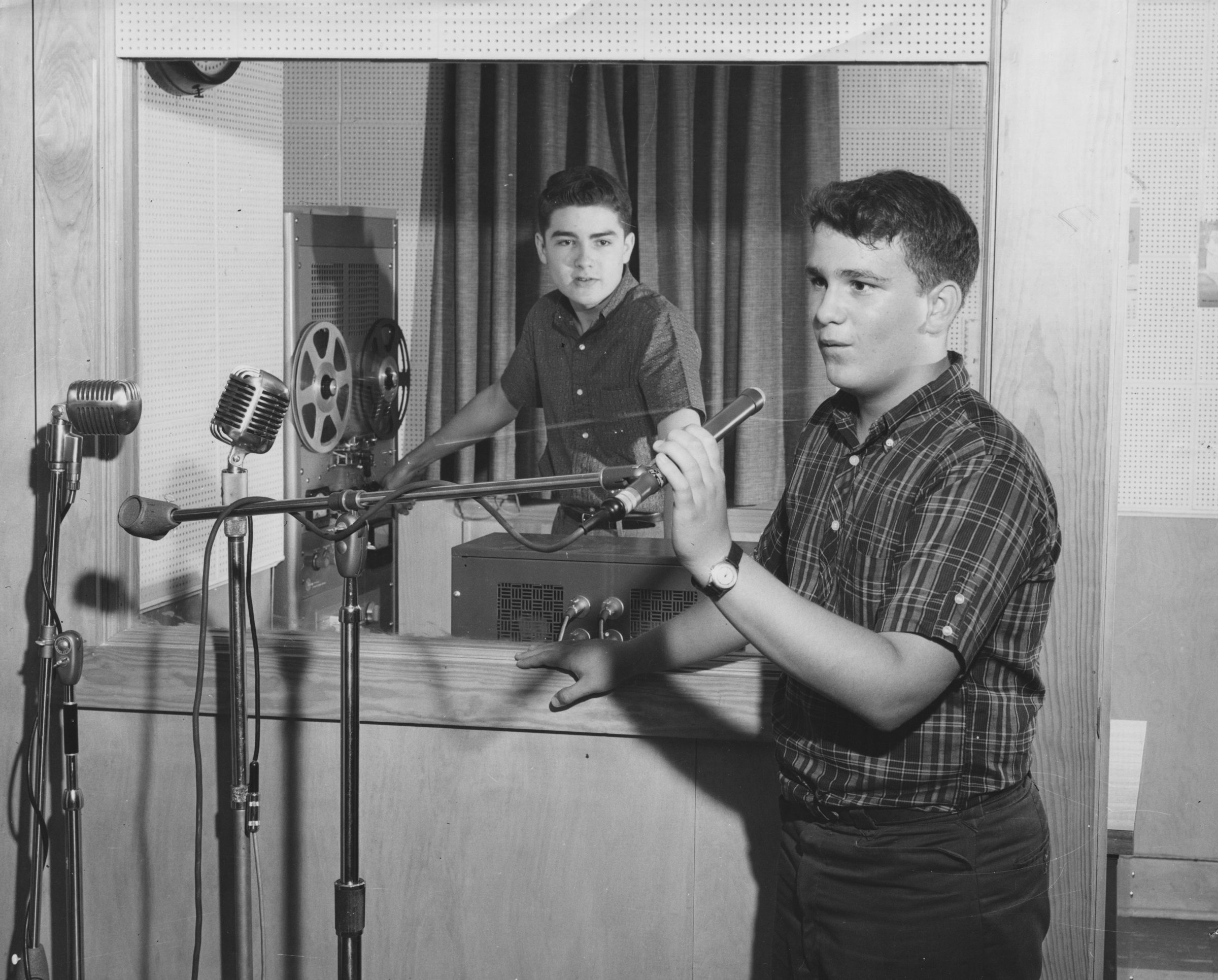
Enter King’s kindred spirits and fellow music devotees, the folks at the Memphis Listening Lab. The newly minted nonprofit, launched on the strength of King’s donated collection, has taken up residence in a custom-built space on the second floor of Crosstown Concourse, and is set to open on June 15.
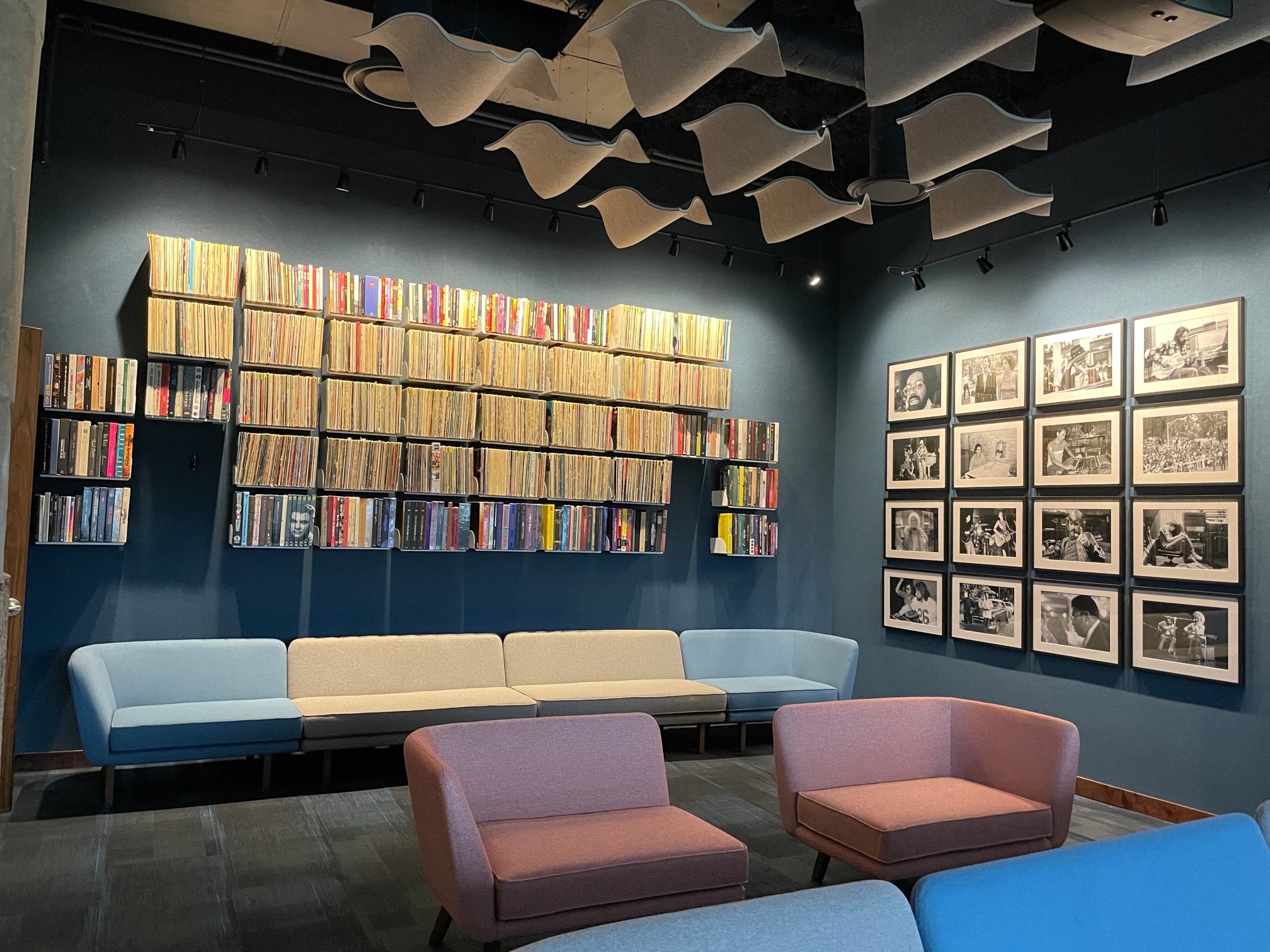
“Open” is a good word for it, for the lab is reimagining King’s collection as a vast public archive, complete with listening stations, event rooms with state of the art speakers and turntables, and a podcast-friendly editing studio.
John King’s collection has become legendary in Memphis music circles. A recent talk with producer Terry Manning brought King’s collecting acumen to the fore. As Manning said, “In the very early Ardent days on National Street, and then later on Madison, we loved the Beatles. Not just the Beatles, but all of the British Invasion bands, the Animals and the Kinks, not so much the Stones, but especially the Beatles. The Hollies. I loved it, John Fry loved it, John King loved it.
“John King also loved radio, and he and John Fry went over to Arkansas and were working with a guy that owned a radio station there. John King started sending letters out to record companies in the name of this radio station, saying ‘please send the records to this P.O. Box in Memphis.’ So all the record companies, big and small, would send their records to the P.O. Box. We didn’t put ’em on the radio, we’d just sit and listen to ’em. We got free records!
“And we started ordering the English records from the John Lever Record Shop in Northampton, England. We would get it all before it was even released [in the U.S.].”
All of which underscores that King’s phenomenal collection — roughly 30,000 45s, 12,000 LPs, 20,000 CDs, and 1,000 music books — is not solely focused on Memphis. As board member Sherman Willmott notes, the collection includes “a lot of Beatles. Some really strangely rare Beatles stuff. Because they would mail order. They’d pick up the phone and mail order from shops in England, and have them shipped here, before there were record imports.”
But the collection is also strong on psychedelia. “Probably the most surprising thing he has, that you wouldn’t expect, is psych,” says Willmott. “I don’t know what got him into it. It’s as if Dr. Demento grew up in Memphis and was into soul and psych. It’s very eclectic.”
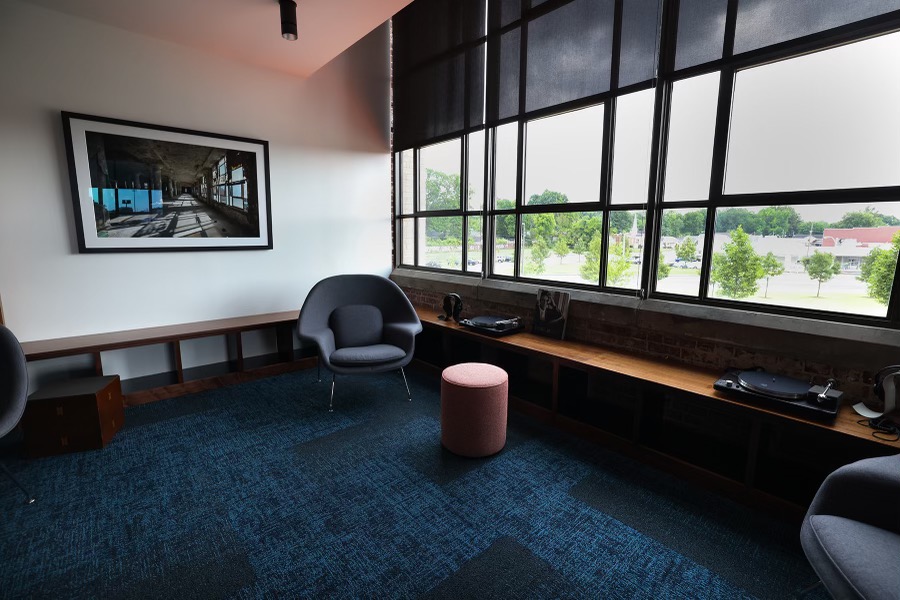
Librarian and archivist Jim Cole, adds, “There are a lot of late ’60s, early ’70s promo copies that were probably mailed to him, and some of those are so obscure, they probably never went past the promo stage.”
Nonetheless, the collection’s relevance to Memphis should not be understated, especially regarding one studio in particular. As Willmott points out, “The Ardent archives in this collection are pretty extensive. It’s like John was the curator of the Ardent’s history. Especially the early stuff. There’s enough stuff to do whatever you’d want to do with it. Books, documentaries, or just casual fandom.”
Cole pulls out some boxes of Ardent artifacts: “We’ve got all the early Ardent 45s and other oddball things.”
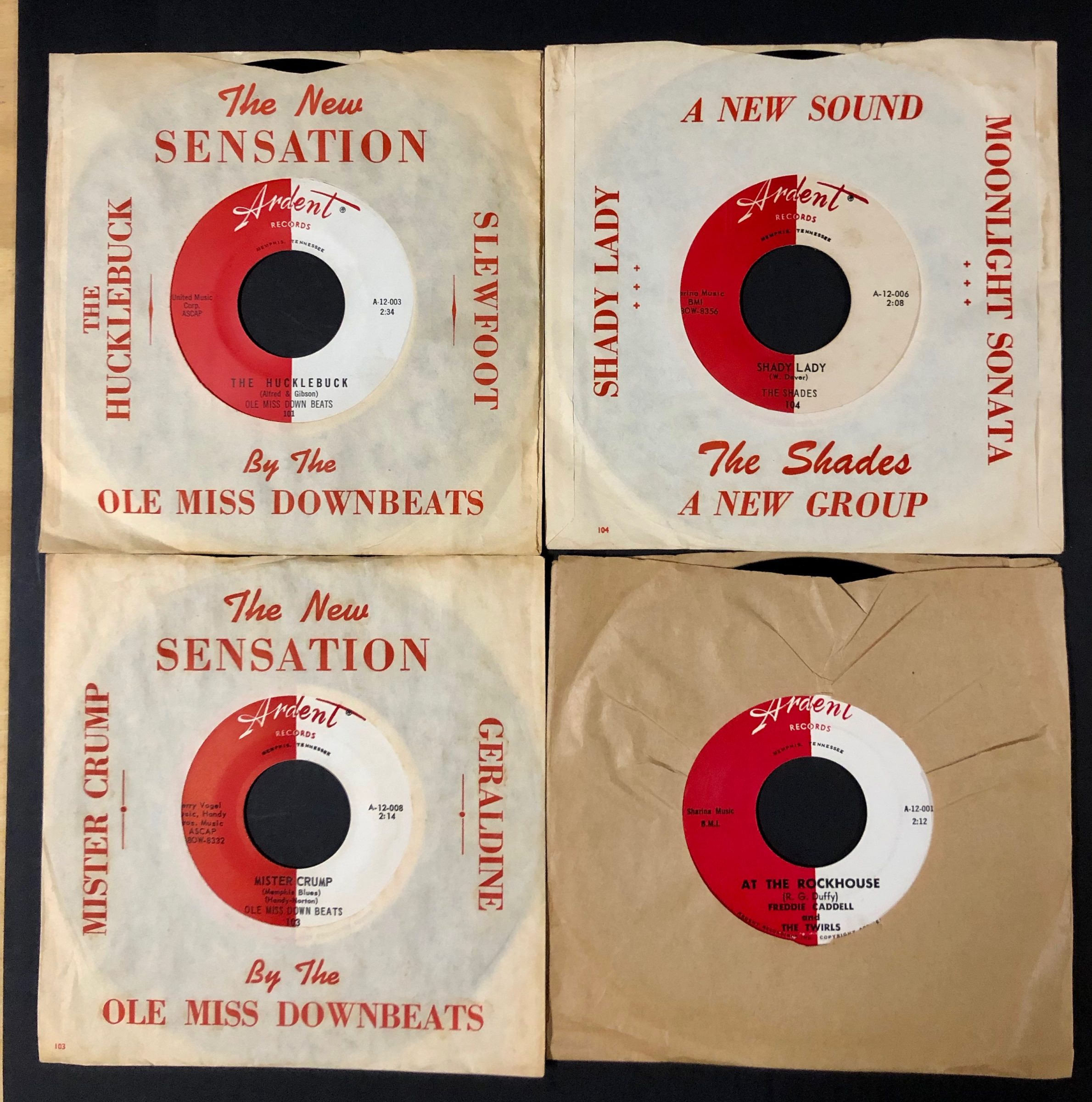
And it goes far beyond Ardent, as Willmott points out. “John’s got so much Memphis stuff in this collection. I mean, he’s deep catalog Memphis, ’cause what he didn’t collect back in the day, he went back and found on eBay or at the store. He’s got all kinds of obscure Memphis 45s, plus all the [CD] box sets that came out. He’s got it covered on so many levels.”
Indeed, the shelves promise hours and days and years of researching and listening to music. Soon there will be ladders as in floor-to-ceiling libraries of yore, not to mention lecture series and listening events where attendees can hear the various media on Memphis’ own high-end audio standard bearer, Egglestonworks.
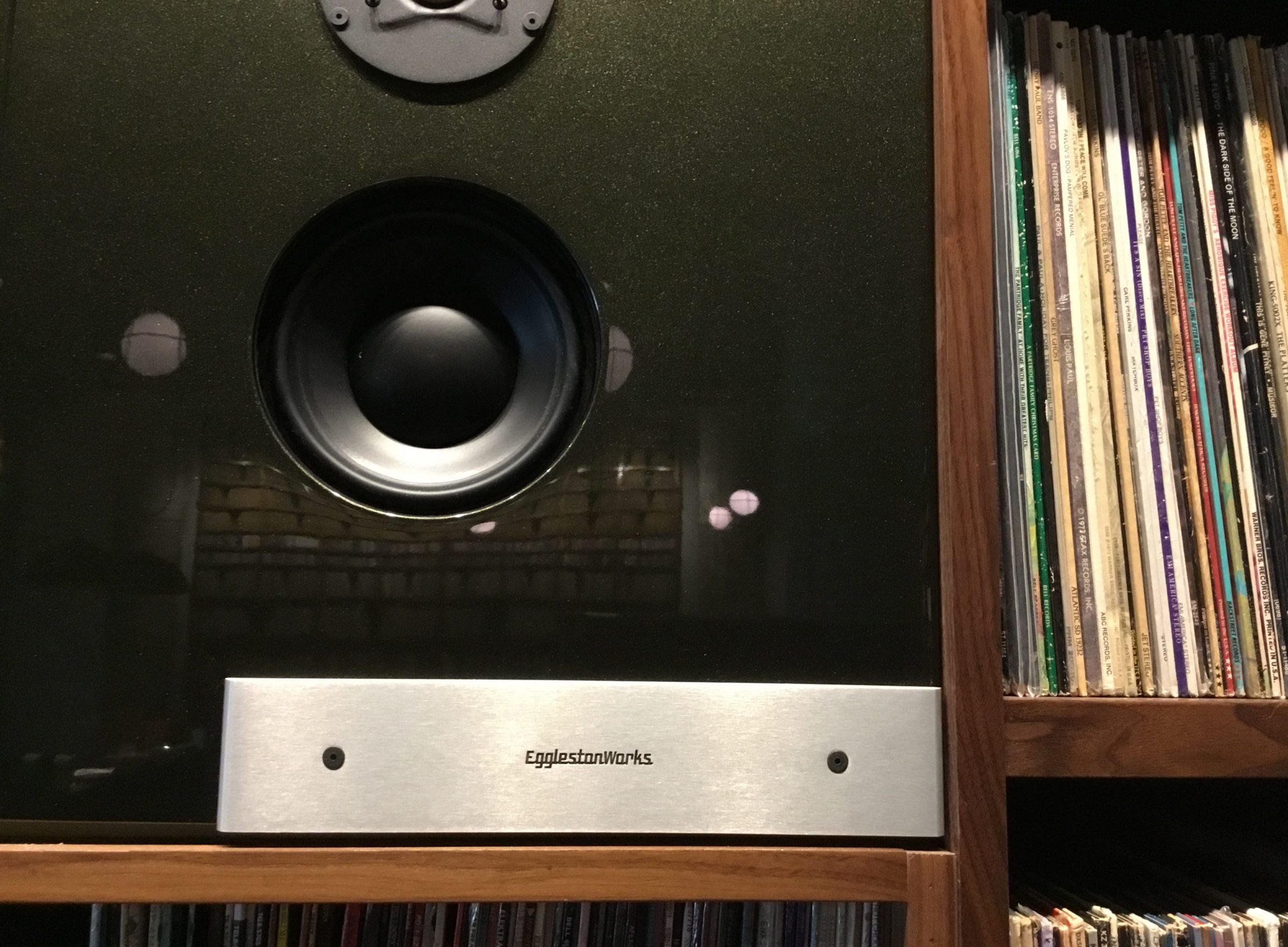
Amid the towering shelves of musical gems and speakers, it’s easy to miss the small door off to the side. As Cole explains, “We’ve got an editing room here. The public can come in and use it for free. It can be used for podcasting. The computer has Pro Tools and Logic, and we have good microphones. And we’re going to work with WYXR, so people who are trying to get shows can come up here and do a demo show on the podcasting station. Or the WYXR programmers can even pre-record a show, if they’re going be out of town or something.”
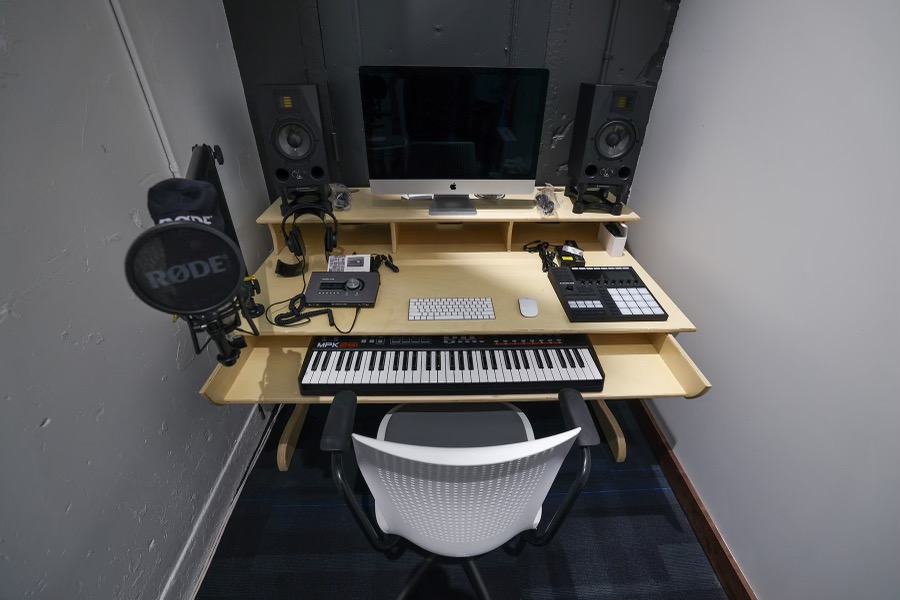
While not all of the audio equipment is yet installed, it will be by July 10, when the lab will host its inaugural event, a tribute to John King. The man who made it all possible will be in attendance. Eventually other collections will be added, but for now, the staff and volunteers at the Memphis Listening Lab have their work cut out for them, as they begin to catalog King’s holdings.
As Cole reflects, “John started collecting in the ’50s, and never got rid of anything. And they started Ardent in ’59, when he was 15, he and John Fry and Fred Smith. And John King went on to work in radio. He wrote a radio programming guide for many years, and got tons of promos. So he got a little bit of everything, and he kept it all. Most people collect one thing. They collect blues or rockabilly. But John collected a little bit of everything. So it’s a great collection. From the most well-known to the most obscure stuff you’ve ever heard of.”
